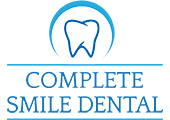Hormonal changes and oral health for mums and mums-to-be
As women go through different stages of life, especially motherhood, their hormones fluctuate, leading to changes throughout the body. One area where these changes can have a significant impact is oral health. Hormonal changes can affect the gums and teeth, making them more susceptible to dental issues like gum disease and tooth decay.
Hormones impact oral health
Hormonal fluctuations, such as changes in estrogen and progesterone levels, can significantly impact a mother’s oral health. During menstrual cycles, pregnancy, and menopause, these changes can cause the gums to become more sensitive and vulnerable to inflammation and infection.
Estrogen can specifically affect how the body reacts to bacteria in the mouth. High estrogen levels can increase gum sensitivity and inflammation by boosting blood vessel numbers. This can make it easier for bacteria to enter the bloodstream, potentially leading to serious oral health problems.
Progesterone, on the other hand, can lead to an increase in the production of prostaglandins, which are hormone-like substances that can cause inflammation in the body. This can increase the risk of gum disease, making it important to maintain good oral hygiene practices to keep bacteria at bay.

Oral health during pregnancy
Maintaining good oral health during pregnancy is essential for both the mother and the baby. Pregnant women face an increased risk of developing pregnancy gingivitis, a condition that affects the gums and causes them to become swollen, red, and tender. Symptoms of pregnancy gingivitis include bleeding gums, bad breath, and a receding gum line. If left untreated, pregnancy gingivitis can lead to more serious conditions like periodontitis, which can increase the risk of premature birth and low birth weight.
In addition to pregnancy gingivitis, hormonal changes during pregnancy can also increase the risk of tooth decay. Increased snacking or sugar cravings during hormonal changes can lead to acid production in the mouth, eroding tooth enamel and causing cavities.
Good oral hygiene practices during pregnancy
Practice good oral hygiene habits during pregnancy, including brushing twice a day, flossing daily, and using mouthwash. It’s also crucial to visit the dentist regularly for checkups and cleanings. Dental treatment can be safely performed during pregnancy with proper precautions, such as avoiding X-rays during the first trimester and using anesthesia only when necessary.
Oral health during menopause
Menopause is a natural stage of life that occurs when a woman’s reproductive years come to an end. This phase can bring many changes to the body, including oral health. As women age and their bodies produce less estrogen, they may experience dry mouth, burning sensations, and an increased risk of gum disease and tooth decay. Practising proper oral care and seeking regular dental checkups can help women maintain optimal oral health while they navigate these hormonal changes.
What else affects oral health during hormonal changes?
Hormonal birth control
Hormonal birth control works by altering hormone levels in the body, which can impact oral health. Some studies have shown that women taking hormonal birth control may be more likely to develop gingivitis and other gum diseases. Additionally, hormonal birth control can cause dry mouth, which can lead to an increased risk of tooth decay and gum disease.
If you are taking hormonal birth control or any other medications that can impact oral health, it’s important to inform your dentist. They can help monitor your oral health and provide recommendations for maintaining good oral hygiene.

Stress, diet, and lifestyle
Eating a balanced diet and getting regular exercise can help support overall health, including oral health. A diet rich in fruits, vegetables, and whole grains can provide essential nutrients for healthy teeth and gums. Regular exercise can also help reduce stress and support overall health.
Smoking cigarettes is a significant risk factor for oral health problems. It can increase the risk of gum disease, tooth decay, and oral cancer. Women who smoke may also experience more severe symptoms of gum disease during hormonal changes.
Managing stress is also important for maintaining good oral health. Stress can lead to teeth grinding, which can cause tooth damage and increase the risk of gum disease. Finding healthy ways to manage stress, such as through exercise, relaxation techniques, or therapy, can help support oral health during hormonal changes.
Talk with your dentist about how to take charge of your oral health during hormonal changes. Remember to keep practising good oral hygiene, seeking regular dental care, and making healthy lifestyle choices so you can protect your oral health and smile with confidence.


